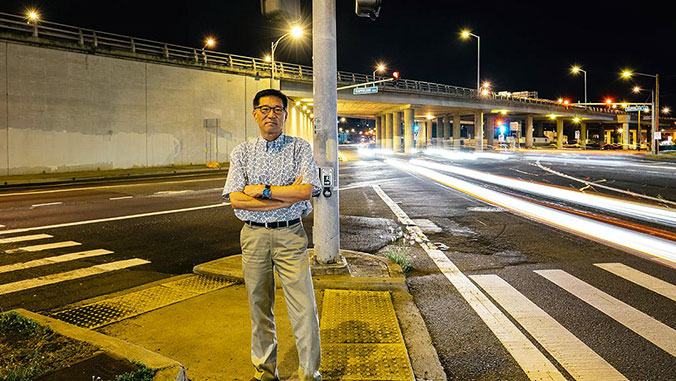
Karl Kim, executive director of the National Disaster Preparedness Training Center and professor in the Department of Urban and Regional Planning in the College of Social Sciences at the University of Hawaiʻi at Mānoa, has been named editor-in-chief of Transportation Research Interdisciplinary Perspectives (TRIP). TRIP is a new open access journal published quarterly by Elsevier. It’s the newest addition to the Transportation Research family of journals that serves as the most comprehensive source of current research in transportation science.
“The most rewarding aspect of serving as editor-in-chief is the potential to address important problems and contribute to an improvement in transportation systems that support the quality of life. TRIP not only explores transportation challenges, but also minds the gap between theory and practice,” said Kim. “This is critical because transportation is the connective tissue linking together social, economic, environmental and ecological domains.”
Kim has served on numerous national and international scientific panels and committees related to risk reduction, and has led executive training programs at the Federal Emergency Management Agency Emergency Management Institute on the “Science of Disasters.” He has worked with universities around the world to build and share curriculum on disaster risk reduction, in the belief that disaster risk reduction is best achieved through the integration of science and policy at all levels of the community.
Since joining UH Mānoa in 1985, Kim has generated more than $60 million in federal, state, and international research and training grants on transportation, traffic safety, GIS, environmental management, disaster management and humanitarian assistance.
Educated at Brown University and the Massachusetts Institute of Technology, Kim has been a Fulbright Scholar to Korea and the Russian Far East. He is the author of more than 100 journal articles and is the past editor of Accident Analysis and Prevention. Currently, his research focuses on the intersections between risk, risk management, risk reduction and resilience in transportation systems.

